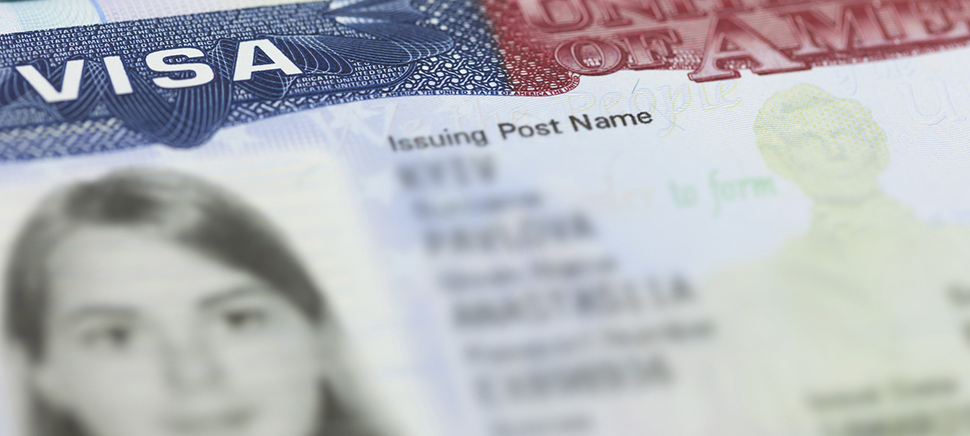STARTUP VISA PROGRAM COULD KEEP IMMIGRANT ENTREPRENEURS IN U.S.
Being an immigrant entrepreneur can be an ugly and complicated business.
Immigrant entrepreneurs start from scratch, but with enough drive and hard work, they can create innovations to help us combat some of the most challenging problems facing our world. And yet, the American immigration system can make it incredibly difficult for immigrant entrepreneurs to remain in the U.S.
As an immigrant myself, and the founder of the health accelerator, Health Wildcatters, I’ve seen these problems first hand. Through my work in the Dallas startup community, I’ve come to know many immigrant entrepreneurs who are working on creative solutions to massive problems facing our community.
Unfortunately, these entrepreneurs frequently struggle to grow their companies, simply because there really aren’t any visas for entrepreneurs. As an investor, and someone interested in seeing the creation of new medical innovations, I want entrepreneurs to focus on building their businesses, not on worrying about their immigration status.
IMMIGRANT ENTREPRENUERS MAKING IMPACT IN DALLAS
Take Arun Asaithambi, for example. Asaithambi is the co-founder and CEO of Lantern Pharma, a biotech company pioneering the field of oncology. Lantern Pharma is creating the next generation of cancer treatments by using genetic profiling to tailor drugs to the needs of individual patients.
Asaithambi’s company is doing incredible work; work that improves and saves lives. However, because there is no immigration pathway for entrepreneurs to self-petition for a visa in order to stay in the United States and continue growing their businesses (even for those educated here), he had to raise money so his own company could sponsor him to stay in the country.
Cobby Amoah is another immigrant entrepreneur who has found success, despite our slow and outdated immigration system. Amos founded the health-care startup Obaa, which enables health-care providers to more easily communicate and collaborate with other providers by streamlining communications across different health-care facilities and treatment levels through messaging, video calls, document management, and patient referrals.
Obaa has the potential to drastically improve health outcomes in our communities by helping patients receive faster diagnoses, but Amoah faces potential hurdles in growing his company in Dallas. He has applied for a green card due to extraordinary talent, but nothing is guaranteed in our capricious immigration system.
Lastly, consider the work of Israeli-born entrepreneur Alin Cooperman, who is the founder of the startup Make My Plate, in Dallas. Make My Plate is on a mission to help people across the world achieve their dietary goals by providing a comprehensive diet marketplace, as well as an innovative visual interface that helps users put their plans into action. If Cooperman succeeds with her venture, she will help members of our community lead healthier lifestyles.
Aren’t these the types of people we should be helping, not hindering?
Asaithambi, Amoah, and Cooperman are far from the only immigrant entrepreneurs who are helping to boost the Texas economy. From 2007 to 2010, immigrants founded almost one-third of the new businesses in Texas. Our community was no exception — immigrants made up 25 percent of Dallas business owners in 2010. Furthermore, immigrant entrepreneurs generated almost 17 percent of our state’s total business income that year.
STARTUP VISAS COULD BE SOLUTION
Immigrant entrepreneurs have innovative ideas, grit, and the will to succeed; they just don’t have a way to stay in the U.S.
The creation of a Startup Visa could help solve this problem. A Startup Visa would allow talented and promising entrepreneurs to remain in the U.S. and build their companies without constantly worrying about their visa status.
As with any immigration program, all program participants would be properly vetted through a comprehensive background check to ensure the visas are issued to skilled entrepreneurs who have good moral character and are committed to making the U.S. a better place through their innovations.
This program would have great benefits, such as making us competitive with other countries who have more business-friendly immigration systems, such as Canada. Even my home country of Austria spends money and resources to recruit the best-educated people back to Austria.
As a co-founder, and former president of the not-for-profit organization Austrian Scientists & Scholars in North America, I know this first hand. More than 1,500 members strong, ASCINA exists to facilitate interactions between the Austrian scientists and scholars who now live in North America.
ASCINA members are some of the best educated and most entrepreneurial minds who have left Austria. Austria has worked hard recently (as have many other European countries), to keep the door open for their expats to return. If we want them in the U.S., then we need to make it easier for them to stay and start businesses.
There are thousands of foreign entrepreneurs who have brilliant ideas to contribute to our country, but who lack the proper visa to come here and start their business. We shouldn’t keep them waiting.
RELATED CONTENT
People Behind Tech Wildcatters Startups Share Business Stories
For a daily dose of what’s new and next in Dallas-Fort Worth innovation, subscribe to our Dallas Innovates e-newsletter.





























